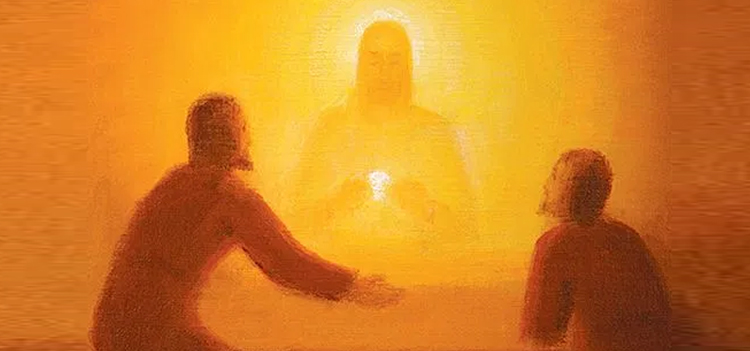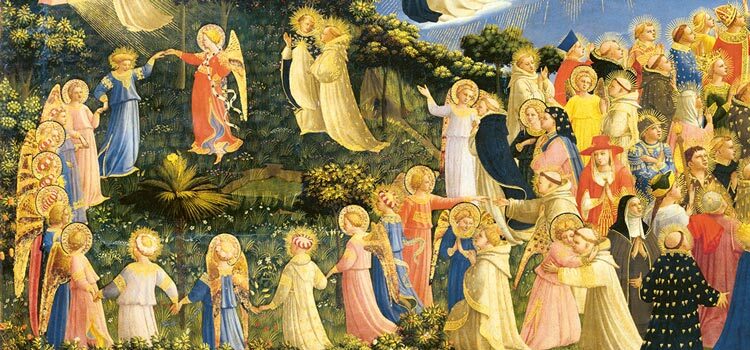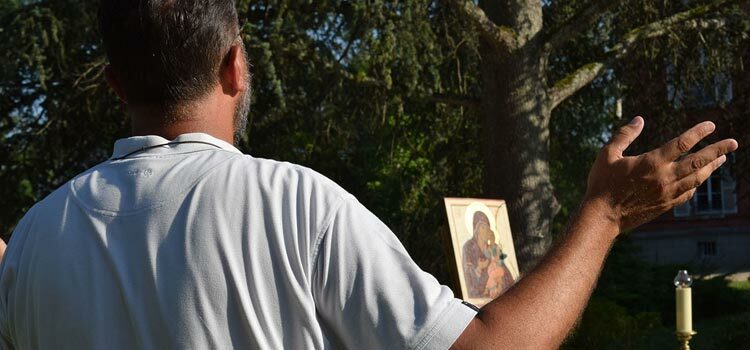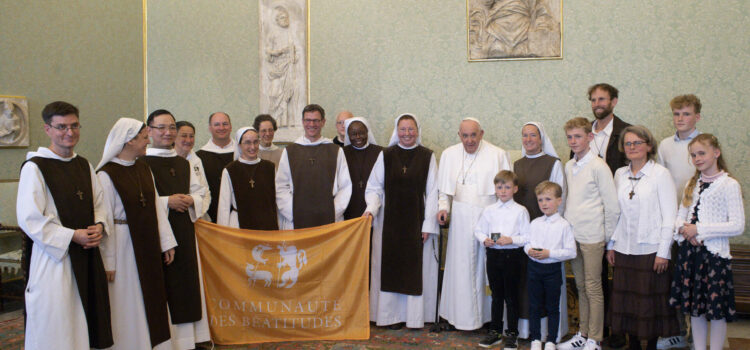To know, in the biblical sense, is to enter into a personal relationship, to « understand », in the sense of « enfolding », to love, to be united. The Bible is filled with expressions of knowledge of God, because desiring God brings with it a taste of that intimacy of love that understands what we are, that sets us free and makes us grow into what we truly are. Orison is the way to grow in this knowledge. Is it not a profound dialogue between the soul and God that gives rise to an intimacy that can go as far as the union of wills? Isn’t it a deep dialogue between the soul and God which gives birth to an intimacy that can go as far as the union of wills ? But if orison allows me to take this path towards my own heart, it is first of all because I myself am known, understood, loved and saved.
God knows me…
« Nathanael said to him : ‘How do you know me ?’ » (Jn 1, 48) « Before I formed you in the womb I knew you, and before you were born I consecrated you » (Jr 1, 5). Orison sets me in front of the Living God who is my creator and my saviour. He knows me even before my conception, he has walked with me on all my paths, he knows my heart better than any other from all eternity. The psalm 139 says it all from the beginning to the end.
This knowledge is the presence and proximity of God who is « closer to me than myself » in the words of Saint Augustin : « He knows me and wants to reveal himself to me »
He invites me to know Him through the Holy Spirit
« Now this is eternal life, that they may know you the only true God, and Jesus Christ whom you have sent. » (Jn.17,3)
According to the story of Adam and Eve, we can consider that the root of sin is linked to a certain fear of God which generates mistrust. The latter can come from false images that inhabit our imagination, our uncon-ciousness or our wounded heart. Jesus’ desire is to give us access to the fruit that heals us from it : the true knowledge of the Father who is “only love and mercy” and the living relationship with Jesus himself, who gives us free access to eternal life from this very day.
« The king has introduced me into his chambers” (Song of Solomon 1,4) declares the Beloved in the Song of Songs, aware that she is being called to union with the Bridegroom.
These « chambers » remind us of the « inner castle » in its most remote room, this « enclosure » where God reveals himself to the soul and, through the gift of the Holy Spirit, allows Himself to be known. When, faithfully and regularly, I take time to keep silent and to listen, I experience a deeper knowledge of God through an inner light, an inspiration, or some words of the Bible which rise in me in a new light : « God is tenderness and mercy » « God is love », « I am the way, the truth and the life », « the bridegroom » « the comforter », etc.
Thus grows a spiritual knowledge that the contemplative grasps in divine light: “God gives himself up as light through the gift of intelligence and is experienced as love through the gift of wisdom” (Father Marie-Eugène de l’Enfant-Jésus). According to the progress in contemplation, the soul will know God in varying degrees, from “the knowledge of faith in revealed truth” to “the transforming union”.
On the other hand, the faithful practice of prayer refines the “spiritual senses” of which the Fathers of the Church speak: sight, hearing, touch, smell and taste of God. Through prayer, new spiritual dimensions are opened up in man and through his spirit, he becomes able to see God who is “with us”, to hear him in the depth of his heart and in his Word, to touch his presence, to sense his sweet fragrance and to taste his goodness: “Taste and see how good the Lord is!” (Ps 33 : 8).
This spiritual light acquired through prayer leads little by little to a greater knowledge of oneself.
To know myself in Him
“I did not know the depth of my heart” (Ct 6 :12) sings the bride in the Song of Songs. Encountering love will reveal to her who she truly is because she discovers herself through the eyes of the Beloved. Thus the knowledge of God does not go without self-knowledge because the relationship with the divine reveals man to himself, and, as is the case in every relationship of trust, it brings down the inner resistances : to be in the presence of God, it is to be both in the light of love and in that of truth, because « steadfast love and faithfulness will meet » Ps.85,10). When my time of prayer evolves towards the silence of a listening and welcoming encounter, the Lord, who watches over my happiness, reveals to me the treasures of my being, the hidden beauties that make my uniqueness, my spiritual riches, and also the inconsistencies to work on, the weeds to tear out, the heavy stones to remove and the dry branches to prune in my inner garden. In other words, a prayer life opens my eyes to the beauty within me as well as to everything that hinders my spiritual growth and my union with God : sins, attachments, evil tendencies, etc. In time, as we remain in faithful attention to the constant presence of God within us, we recognize our weaknesses and strengths, becoming more vigilant , sensitive to the inner motions of our heart and acute in discerning the thoughts crossing our mind, such as jealousy, judgement which, as soon as they are spotted, are replaced by a blessing, or a movement of self-denigration will give rise, instead of criticism or complaint, to a retreat within ourselves, allowing us to assess the situation with a sense of humour. “It is this knowledge of oneself in the light of God that will ensure the spiritual life [of the soul] its balance, that will make it human and at the same time sublime, practical and at the same time able to reach very high” (Father Marie-Eugene of the Child Jesus). God loves to reveal himself, and because he calls us “his friends”, he reveals himself to us and reveals us to ourselves.
Let us allow ourselves to be drawn into this movement of love whose key word is “humility”
Quotation
« You will experience the love of Christ which surpasses all knowledge, that you may attain to the fullness of God himself ».
Saint Paul – Ep 3, 19
To Go Further…Just for today:I recall what God has revealed to me about himself, through one or other of his attributes, I dwell on it and I take some time to taste this « divine revelation » from within, asking him to reveal himself more. Books:The reference book on this subject is by Father Marie-Eugene de l’Enfant Jesus : « I want to see God » (https://www.sistersofcarmel.com) : |
Find the previous articles in our “Life of prayer” series.
(publication edited by brothers and sisters of the Community of the Beatitudes – © rights reserved).






